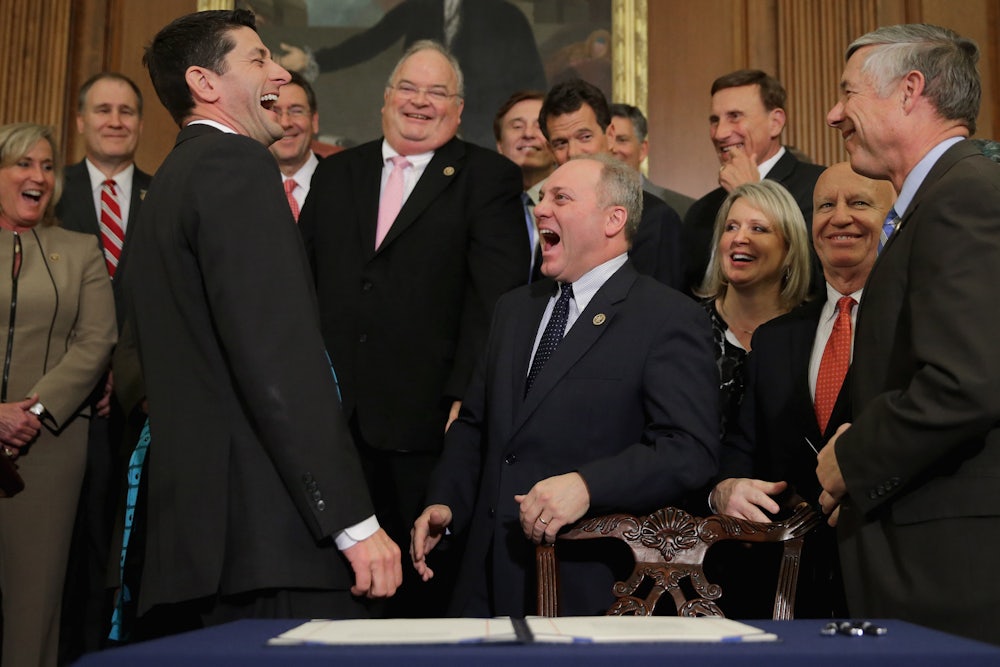Back when Republicans first introduced the American Health Care Act, they were circumspect enough not to exempt themselves from their own law. The Affordable Care Act took members of Congress and their aides out of the health benefit plan most federal employees enjoy and allowed them to purchase subsidized plans on the Washington, D.C. health benefits exchange instead. In their efforts to destroy Obamacare, I thought they might make a craven political error, and restore their own access to the federal employees health benefit plan, while subjecting the broader public to much worse insurance. Trumpcare for thee, but not for me.
To my surprise, they managed to avoid that mistake several weeks ago. But that only makes it harder to fathom why they’re attempting something at least as bad, and far more bizarre, today.
The health law expert, and Obamacare supporter, Timothy Jost, noticed that in the latest iteration of AHCA (aka zombie Trumpcare) Republicans are proposing to exempt themselves from their own efforts to gut pre-existing conditions protections. They want to allow states to waive protections that require plans to offer essential benefits (hospital stays, etc) and that prohibit plans from charging sick people higher premiums than healthy people—unless those plans happen to belong to members of Congress and their staffs.
The politics of this decision will be brutal, but the decision itself is also completely inscrutable. ACA rules require members and aides to buy their plans on D.C.’s small-business exchange. This provision only serves any practical purpose if you worry that the District of Columbia—one of the most liberal precincts in the country—will waive pre-existing conditions protections.
Maybe Republicans worry that the D.C. government would waive these protections to make Congress live with the consequences of its own dirty work, or as part of an escalating brinkmanship with Congress, which controls D.C.’s budget? But that would impose harsh collateral damage on a lot of poor and working class residents of the District. Maybe Republicans worry the D.C. government would seek a waiver for beneficiaries on the small-business exchange, or for Congress specifically? That would at least be congruent with the nature of this exemption. But it also means taking a huge political hit right now—when they’re trying to advance an already-unpopular bill—in order to shield themselves from far-off and entirely hypothetical complication.
Reestablishing congressional access to FEHBP would have been terrible politics, too, but at least it would have made sense, and had a certain pro-ACA-repeal consistency to it. What they’re doing here is more like cornering their own king in a game of chess to gain advantage on an imaginary third dimension.
